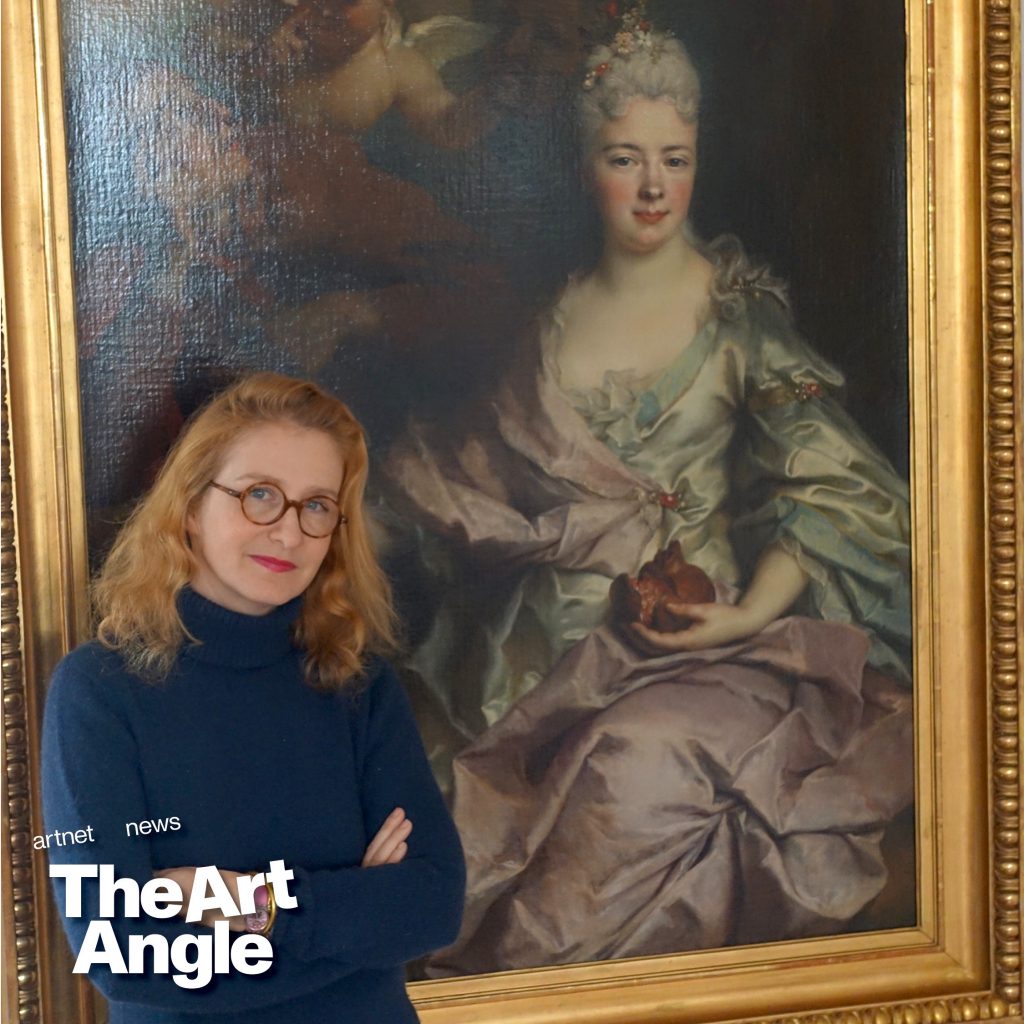The Art Angle
The Art Angle Podcast: The Nazis Stole Her Family’s Art. Here’s How She Got It Back
This week, one woman's quest to track down art looted from her family during World War II.

This week, one woman's quest to track down art looted from her family during World War II.

Artnet News

Welcome to the Art Angle, a podcast from Artnet News that delves into the places where the art world meets the real world, bringing each week’s biggest story down to earth. Join us every week for an in-depth look at what matters most in museums, the art market, and much more with input from our own writers and editors as well as artists, curators, and other top experts in the field.
Yesterday, a sumptuous portrait of a woman with a confident regard and rouged cheeks, porcelain skin, and a powdered updo reminiscent of cool whip hit the block at Sotheby’s auction house as part of the Master Paintings & Sculpture sale.
Titled Portrait of a lady as Pomona, traditionally identified as the Marquise de Parabère by the 18th-century French artist Nicolas de Largillière, the painting was less notable as a market event than for what its sale meant to its sellers—in this case, the 20 heirs of Jules Strauss, a pioneering German art collector.
In 2014, one of his great granddaughters, Pauline Baer De Perignon, began investigating the fate of his beloved artworks during World War II, including pieces by the likes of Renoir, Monet, and Degas. As a Jew living in Paris, Strauss, like so many others of his religion, faced persecution under German occupation. While he avoided deportation, Strauss was forced to hand over a still-unknown number of works to the Nazis, an ugly truth that Pauline’s family chose to forget for decades.
Portrait of a lady as Pomona is the first painting from his collection to be restituted to the family, thanks in large part to the tireless efforts of Pauline, detailed in her new book, The Vanished Collection.
In the run-up to the auction, we were pleased to welcome Pauline to the Art Angle, where she spoke to Artnet News senior writer Sarah Cascone about the challenges of tracking down looted art, sifting through archival records, and what restitution and justice means to the families of those who lost everything in the Holocaust.
Listen to Other Episodes:
The Art Angle Podcast: How the Met’s Astonishing Surrealism Show Rewrites Global Art History
The Art Angle Podcast: How the Artist Pension Trust Became a Gigantic Fiasco
The Art Angle Podcast: 6 Predictions on How the Art Industry Will Transform in 2022
The Art Angle Podcast (Re-Air): How NFTs Are Changing the Art Market as We Know It
The Art Angle Podcast: Our Favorite Episodes of 2021
The Art Angle Podcast: From Handbags to Hard Cash, How Dealers Woo the Artists They Want to Rep
The Art Angle Podcast: A Gossip Columnist Walks Into a Bar at Art Basel Miami Beach
The Art Angle Podcast: Where Do NFTs Go From Here? An Interview With Christie’s Noah Davis
The Art Angle Podcast Re-Air: How High-Tech Van Gogh Became the Biggest Art Phenomenon Ever